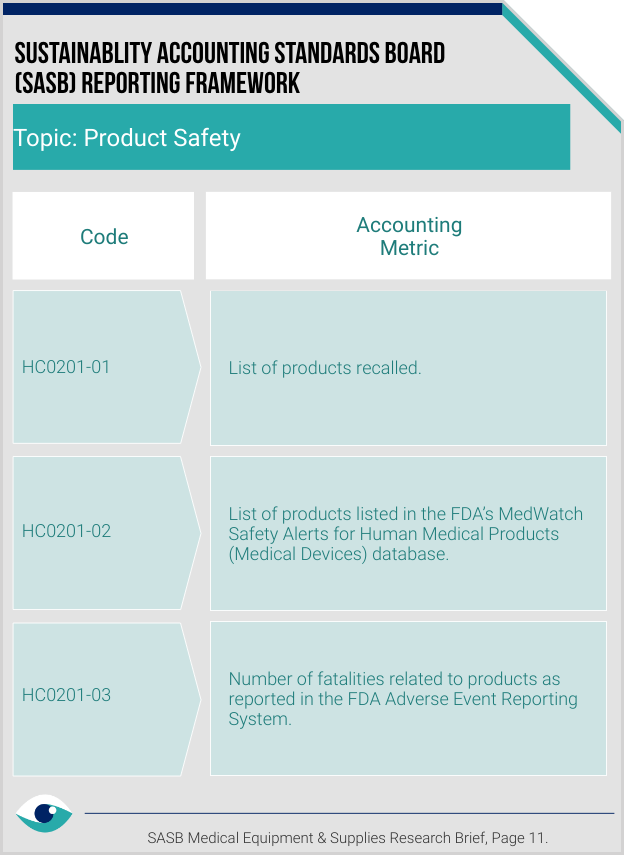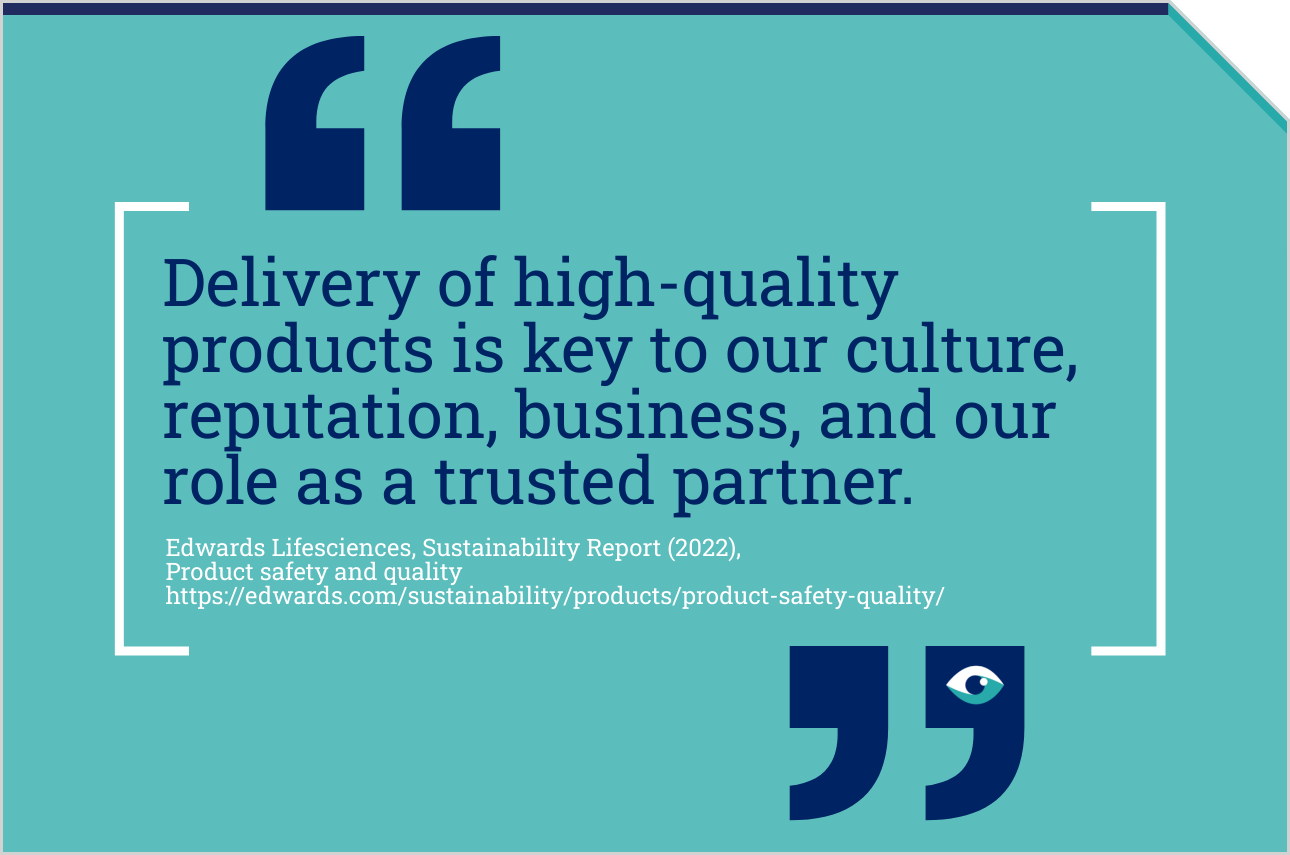Demographic shift will see elderly populations double, this and a rise in chronic illness results in medical device market growth estimated at 6.3% CAGR towards 2027. Rapid innovation in the industry is meeting this demand and is critical to product safety. In processes and outputs, product safety can reduce regulatory scrutiny, compliance failures, recalls and events that lead to product liability claims. Firms that mitigate risks protect shareholder value and maximise market opportunity. Innovation’s social and governance impact improves organisational satisfaction, work environments, quality of output and enhances talent attraction and retention.

Innovation and employee satisfaction as drivers for safety
Innovation is vital to developing new equipment but also in engaging employees, product safety and overall organisational success
People: Social & Governance impacts
Healthcare services
AT A GLANCE
Rising demand for medical devices is met by technological innovation critical to product safety.
People-centred innovations enhance organisational and individual performance in turn driving quality and compliance.
Leading manufacturers often demonstrate proactive product safety initiatives in disclosures that follow SASB guidelines.

Training and performance
Research published by the US National Library of Medicine (NIH), conducted in South Korea, encompassing 8629 workers and 368 companies, connects the benefits of an innovative culture with overall performance. The findings suggest that continuous investment in education and training improves organisational and individual performance, which in turn equates to better product safety. Disclosures by leading manufacturers, including Edwards Lifesciences, reveal a long-term commitment to training.
Proactive management
Product safety is a strategic imperative for sustainability. In addition to compliance with rigorous global and regional standards, a proactive quality approach, including post-market surveillance such as that conducted by Medline’s clinical experts, is essential to identifying and addressing issues promptly to prevent adverse patient impacts and to public trust. Edwards Lifesciences embodies quality as the responsibility of employees and trains all workers on its quality management system.

Talent and traceability
Organisational and employee satisfaction are vital to attracting and retaining talent in critical mixed-expert teams. 3M’s Product Safety Corporate Staff Group consists of toxicologists, scientists, and engineers who assess its products for the potential to cause adverse health or environmental impacts. Edwards Lifesciences has implemented a unique device identifier (UDI) programme, as mandated by regulatory traceability requirements, that identifies issues at origin in the value chain.
Long-term responsibility
The efforts of medical supplies and equipment manufacturers are not just short-term. Leading firms recognise the need for continuous training to employ experts for long-term post-market monitoring. However, these firms also acknowledge the specific risks that accompany innovation and technological progress. Beckton Dickinson has adopted cybersecurity and technical standard initiatives to support advancement and innovation, bringing new products to market faster while prioritising product safety.
FURTHER READING
- Culture and Firm Performance of Medical Device Companies (National Library of Medicine)
- Human resources for medical devices (UN WHO)
- Medical Equipment & Supplies (SASB)
